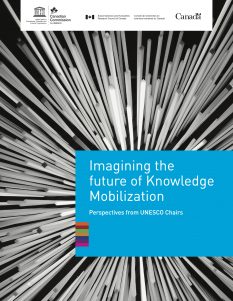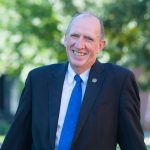For Immediate Release
Charlottetown, PEI (January 18, 2021) —
Getting the word out: How knowledge gets shared on islands
New research from UPEI’s Institute of Island Studies and UNESCO Chair in Island Studies and Sustainability highlights knowledge mobilization in island contexts. More here.
You might think a conversation at your local coffee shop or at the hockey rink is just something you do in passing, but recent research done by the Institute of Island Studies at the University of Prince Edward Island (UPEI) says there is more to it than that.
In January 2020, the Canadian Commission for UNESCO (CCUNESCO) asked Canada’s network of 27 UNESCO Chairs to contribute papers on Knowledge Mobilization (KMb): how research gets into the hands of people who can use it. UPEI’s UNESCO Chair looked at how knowledge is mobilized on islands across Canada. Knowledge on islands was one of six submissions selected for CCUNESCO’s final report Imagining the future of Knowledge Mobilization: Perspectives from UNESCO Chairs.
Too often, informal and local knowledge on islands is thought of as being less important than the formal knowledge that we get from government, researchers, or other organizations. It turns out that what really creates resilience on islands is informal knowledge that we share in our day-to-day lives when we get together. The research also shows that if this knowledge is not valued and included in planning and decision-making by those in positions of power, they risk making communities more vulnerable.
In the words of Dr. Jim Randall, UNESCO Chair in Island Studies and Sustainability at UPEI, “I think most islanders know the value of what they might learn at the local coffee shop, but it doesn’t necessarily register for decision-making bodies, especially those not on the island, such as a federal government department. This knowledge-sharing is not just important in the day-to-day lives of people, but also in how they address more significant challenges such as climate change or a pandemic.”
Randall was joined by the Institute of Island Studies’s Dr. Laurie Brinklow and UPEI Master of Arts in Island Studies student Marlene Chapman to complete the project. Their research included focus groups in Atlantic Canada, the Great Lakes, and British Columbia’s west coast. They wanted to find out if knowledge-sharing is different on islands, and they found that, yes, it is. Their chapter in the report details these differences, and makes recommendations on how islands might make use of this information to make their communities more sustainable in the future.
For more information and to access English and French versions of the report, go to projects.upei.ca/unescochair/knowledge-mobilization-2021.
-30-
Media contact:
Dave Atkinson, UPEI
(902) 620-5117, datkinson@upei.ca
Project contact:
Dr. Laurie Brinklow, Institute of Island Studies, UPEI
brinklow@upei.ca
Institute of Island Studies | UNESCO Chair in Island Studies & Sustainability
Island Studies Press | Master of Arts in Island Studies
© 2021 Institute of Island Studies, University of Prince Edward Island. All rights reserved.

